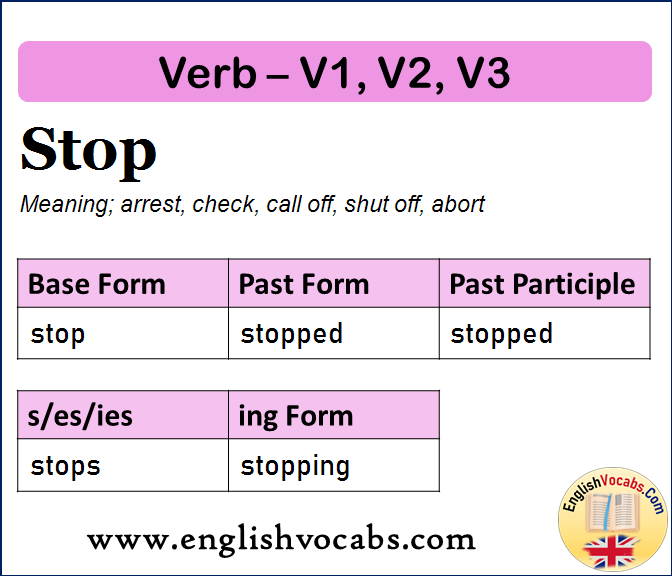
Stop Past Simple, Past Participle, V1 V2 V3 Form of Stop English Vocabs
[intransitive, transitive] to no longer move; to make somebody/something no longer move The car stopped at the traffic lights. Ann stopped in front of the house. This train doesn't stop at Oxford. stop somebody/something He was stopped by the police for speeding.; She stopped the car opposite the school.

can you use at the end of a sentence Eden Newsletter Bildergallerie
Stop definition: to cease from, leave off, or discontinue. See examples of STOP used in a sentence.
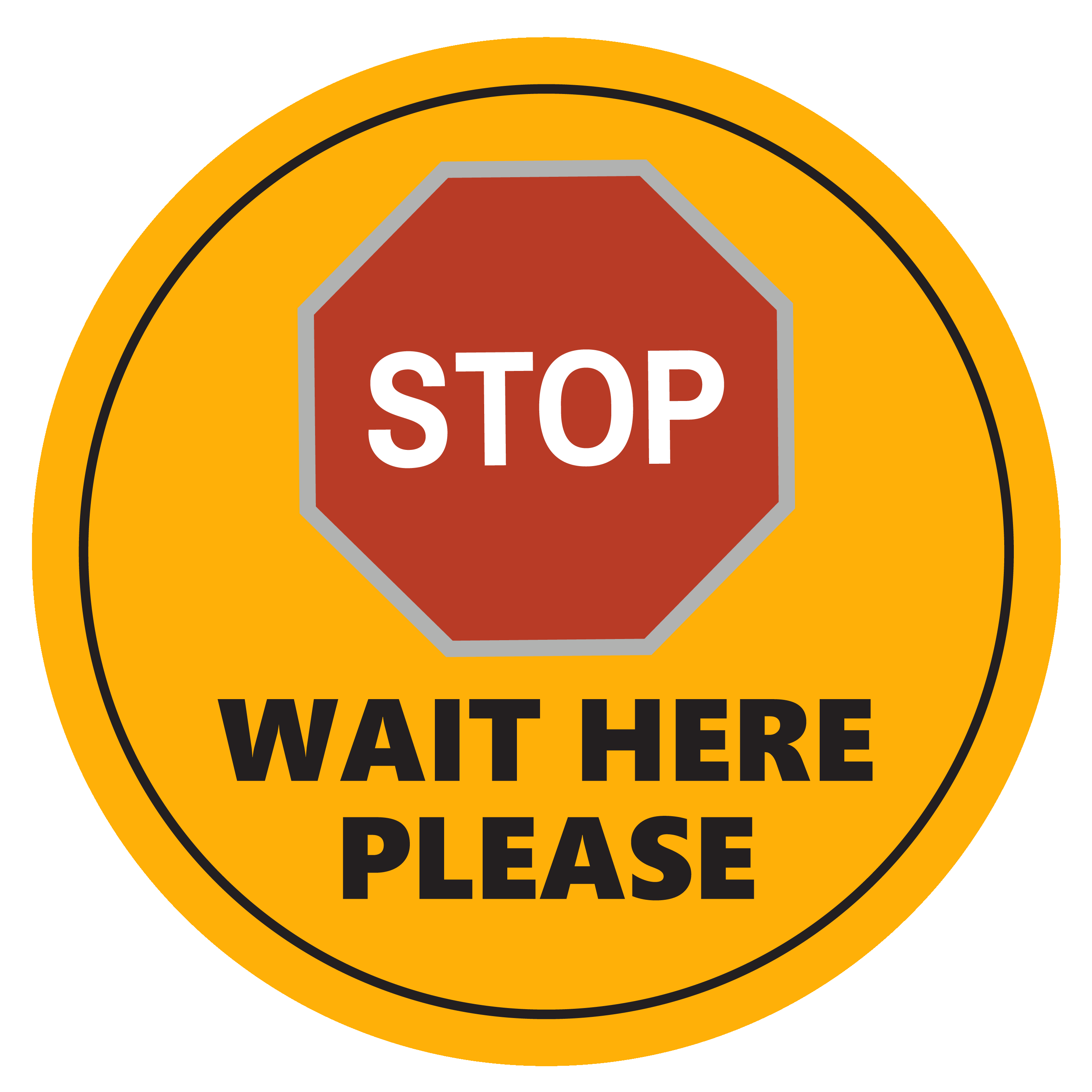
Window/Wall sticker Stop wait here circle 400×400 Live Creative Sign
Stopped definition: . See examples of STOPPED used in a sentence.
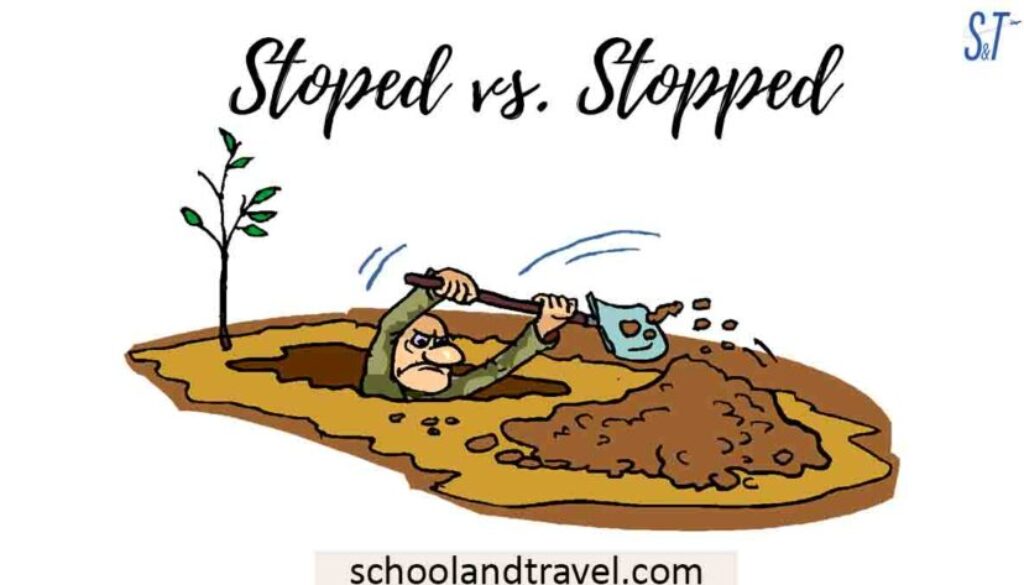
Stoped vs. Stopped What's the difference?
Alright, let's dive into the world of grammar and answer the burning question - "Stoped or Stopped: Which is Correct?" The correct spelling is "stopped." Yes, you read that right! The word "stoped" does not exist in standard English. It's just a common mistake that many people make. So, if…
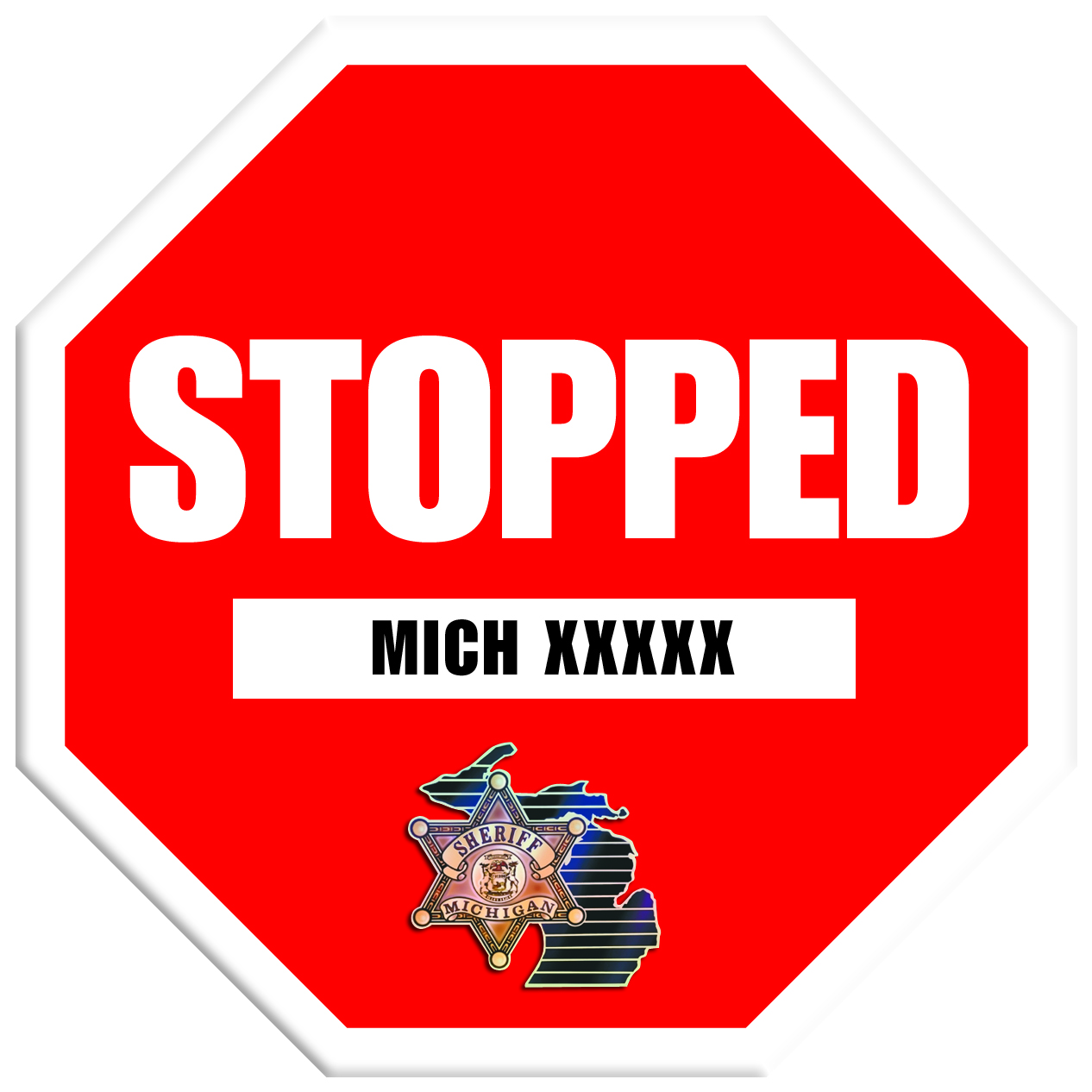
STOPPED Michigan Sheriffs' Association
beef or beaf. beggar or begger. boring or borring. carrying or carring.

stop Homepageprofis Webdesign aus Oberösterreich
Hey there! Let's tackle the question at hand: "Stopped or Stoped - Which is Correct?" Now, you might be a bit puzzled about the right spelling of the past tense of the verb "to stop." Don't worry, I'm here to shed some light on this topic and help you become a grammar guru! First of all, the correct spelling is "stopped."

Stop Sign Clip Art Free ClipArt Best
Oct 20, 2009. #5. It is helpful to write out Verb in full. Most of us aren't used to your form of abbreviation. stop + to + Verb. stop + Verb-ing. . These are easier to understand than the abbreviated forms, but the most of us find it easier to think about the specific examples you give us than the abstract pattern.

Book Review Stop Being Stopped Naturopathic Doctor News and Review
stopped - WordReference English dictionary, questions, discussion and forums. All Free.

To stop or not to stop? To think or not to think? Along The Yellow
As you can see, it contains a double -p letter. If you're wondering why, here's the crucial rule: we need to double the final letter when a one-syllable verb ends in consonant + vowel + consonant. Therefore, stoped is not correct. Definition of stopped: verb, put an end to something. Sophie stopped eating when she found herself fat.

Stop (verb) Teflpedia
It is mostly used to denote when something is hypothetical or counterfactual. I recommend using stop if you wish to urge people to actually stop something, but stopped if the situation is 'kinda maybe something they could sorta do'. - Anonym. Mar 18, 2014 at 5:49. Add a comment.

Past Tense Of Stop Stoped or Stopped? (Pronunciation & Usage)
From Longman Dictionary of Contemporary English ldoce_753_z stop stop 1 / stɒp $ stɑːp / S1 W1 verb (stopped, stopping) 1 not continue a) [intransitive, transitive] to not continue, or to make someone or something not continue By midday the rain had stopped. This is where the path stops. The referee stopped the fight. The doctor advised me to stop the medication.
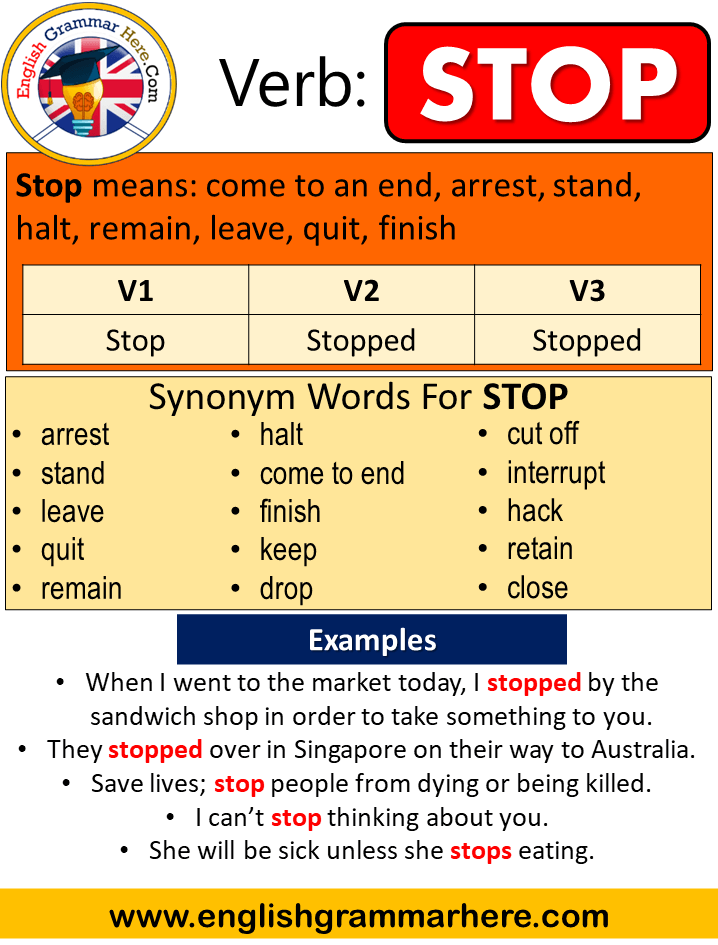
Stop Past Simple, Simple Past Tense of Stop, Past Participle, V1 V2 V3
That's why the correct form is stopped and the incorrect one is stoped. Definition of stopped: 1. verb (past simple, past participle), to come to an end. When I saw her coming, I immediately stopped talking. I recently stopped smoking cigarettes. 2. adjective participle, ceased to happen. My car was stopped at the end of the road.
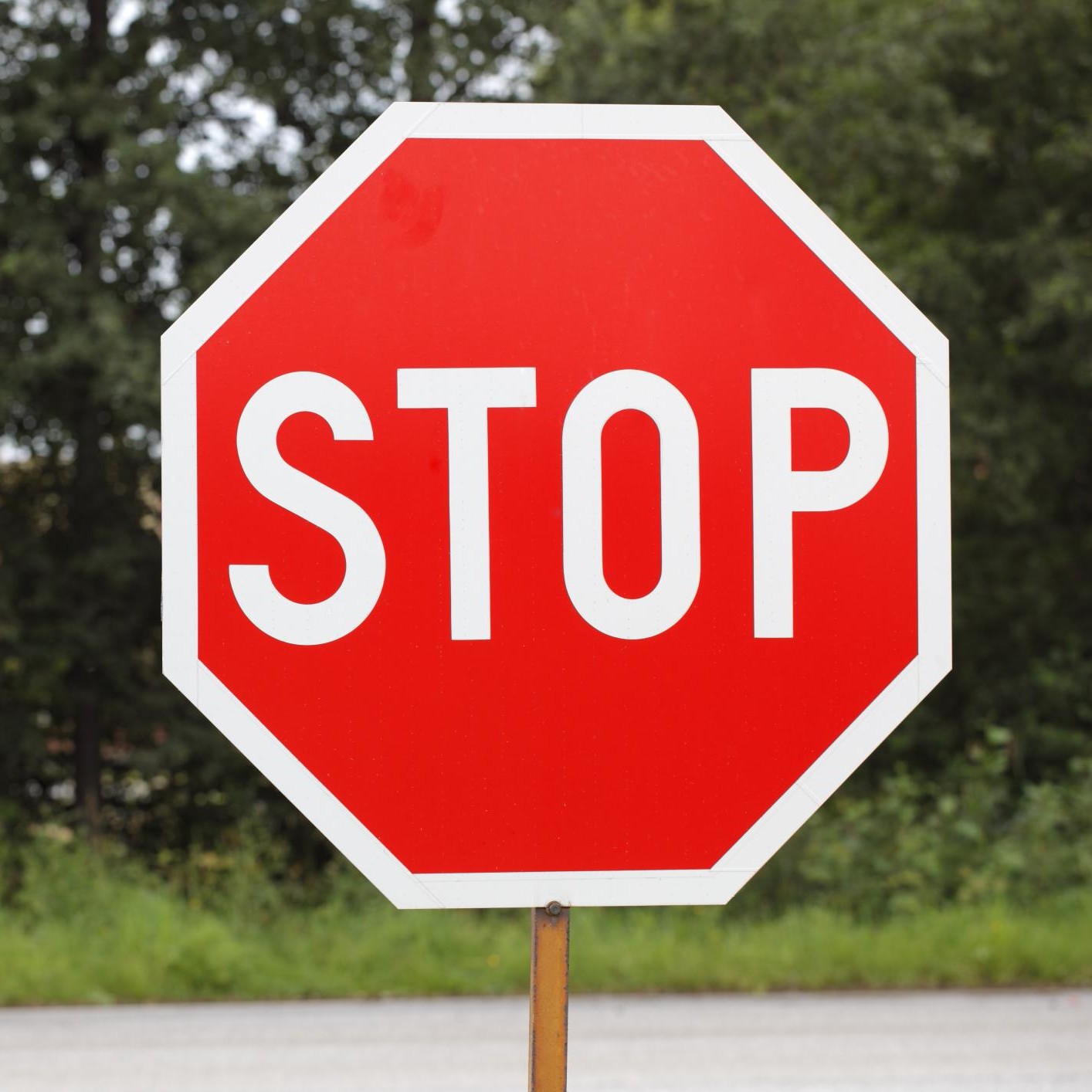
Here’s Why Stopping at Stop Signs is So Important
STOPPED definition: 1. past simple and past participle of stop 2. past simple and past participle of stop . Learn more.

This Is How the Amazon Juggernaut Will Finally Be Stopped The Motley Fool
stopped meaning: 1. past simple and past participle of stop 2. past simple and past participle of stop . Learn more.

How to Deal With Being Stopped by Police 6 Steps (with Pictures)
LEARN ENGLISH. When you look closely at "Stoped" and "Stopped," you will notice that the difference between these words is the presence of an extra "p" in "stopped" which is absent in the other word. However, if you look at these words, you will also feel like "stoped" is the obsolete or incorrect spelling of the other word.

stopgo1 Bryan's Automotive
v.tr. 1. To close (an opening or hole) by covering, filling in, or plugging up: The tea leaves stopped the drain. 2. To constrict (an opening or orifice): My nose is stopped up. 3. To obstruct or block passage on (a road, for example). 4. To prevent the flow or passage of: stop supplies from getting through.